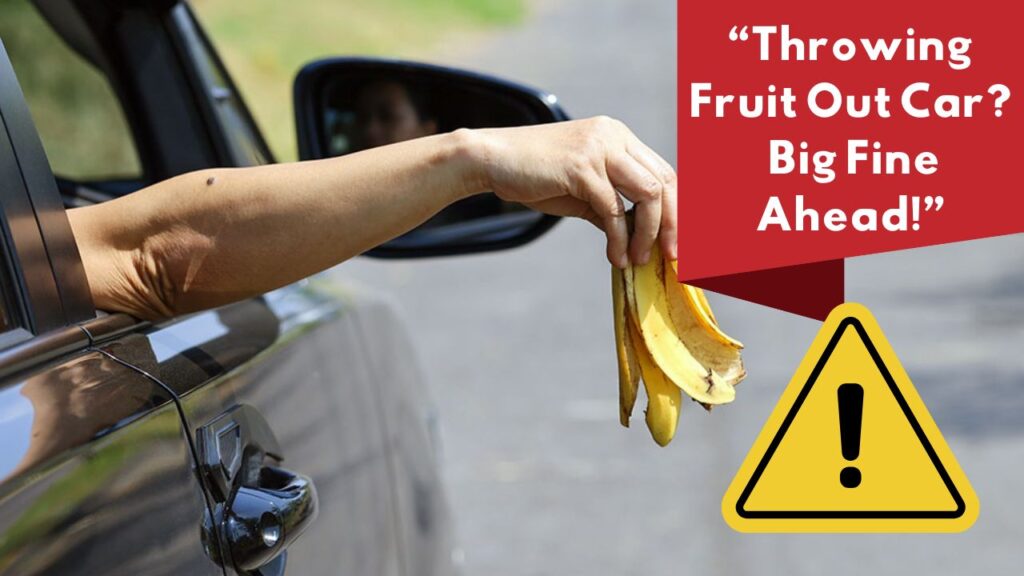Australian Traffic Rules – Littering from vehicles might seem harmless when it’s just an apple core or banana peel, but under Australian laws, this small act can land you in serious trouble. Many drivers assume organic waste decomposes quickly and therefore poses no harm, but authorities across the country treat it as litter. Tossing anything out of your car window — even biodegradable food scraps — is considered a breach of road and environmental regulations. Offenders can face heavy fines, licence demerits, and in some states, even legal charges for endangering wildlife and public safety.

Australian Road Rules on Throwing Organic Waste
Under the Australian Road Rules, throwing any item, including banana peels or apple cores, from a moving or stationary vehicle is strictly prohibited. State and territory governments enforce these rules under their littering and environmental protection laws. For instance, in New South Wales, the Environmental Protection Authority (EPA) can issue on-the-spot fines of up to $900 for littering from vehicles. This regulation aims to keep roads clean, protect wildlife, and prevent accidents caused by distracted drivers or slippery debris.
Environmental Impact and Safety Concerns of Littering
Drivers often underestimate the environmental risks of tossing food waste out the window. Even biodegradable items like apple cores can attract wildlife to the roadside, leading to accidents involving animals and vehicles. Over time, these discarded items pile up, disrupting ecosystems and harming native species. In Australia’s warm climate, decomposing food can also cause odour and hygiene problems. Authorities continuously remind motorists that small acts of carelessness can have lasting environmental consequences.
Penalties and Enforcement Across Australian States
Each Australian state enforces strict penalties for vehicle littering. In Victoria, fines can exceed $700, while in Queensland and South Australia, penalties reach up to $1,500 depending on the severity and repeat offences. Enforcement officers and dashcam submissions from the public have made it easier to identify offenders. The government’s message is clear — no item, organic or otherwise, should ever leave a car window. The focus is not only on cleanliness but also on promoting respect for public roads and environmental safety.
Responsible Waste Disposal and Eco-Friendly Practices
To stay compliant and eco-friendly, drivers should carry small car bins or biodegradable bags for waste collection. Once parked, these can be disposed of in roadside or home bins. Many environmental campaigns encourage motorists to think twice before tossing anything, reminding them that “biodegradable” does not mean “acceptable.” Australia’s goal is to maintain clean, wildlife-safe highways, and small personal habits can make a big difference in achieving that.
FAQs
1. Is throwing banana peels out of the car illegal in Australia?
Yes, it is considered littering and can result in fines.
2. Do the fines apply even if it’s biodegradable waste?
Absolutely, biodegradable items are also covered under littering laws.
3. Which Australian state has the highest littering fines?
Queensland and South Australia impose some of the highest penalties, up to $1,500.
4. How can I report someone littering from a vehicle?
You can report it through your state’s EPA website using the vehicle’s registration number.
What are the consequences of littering fruit waste while driving in Australia?
It can result in hefty fines and penalties for drivers.




